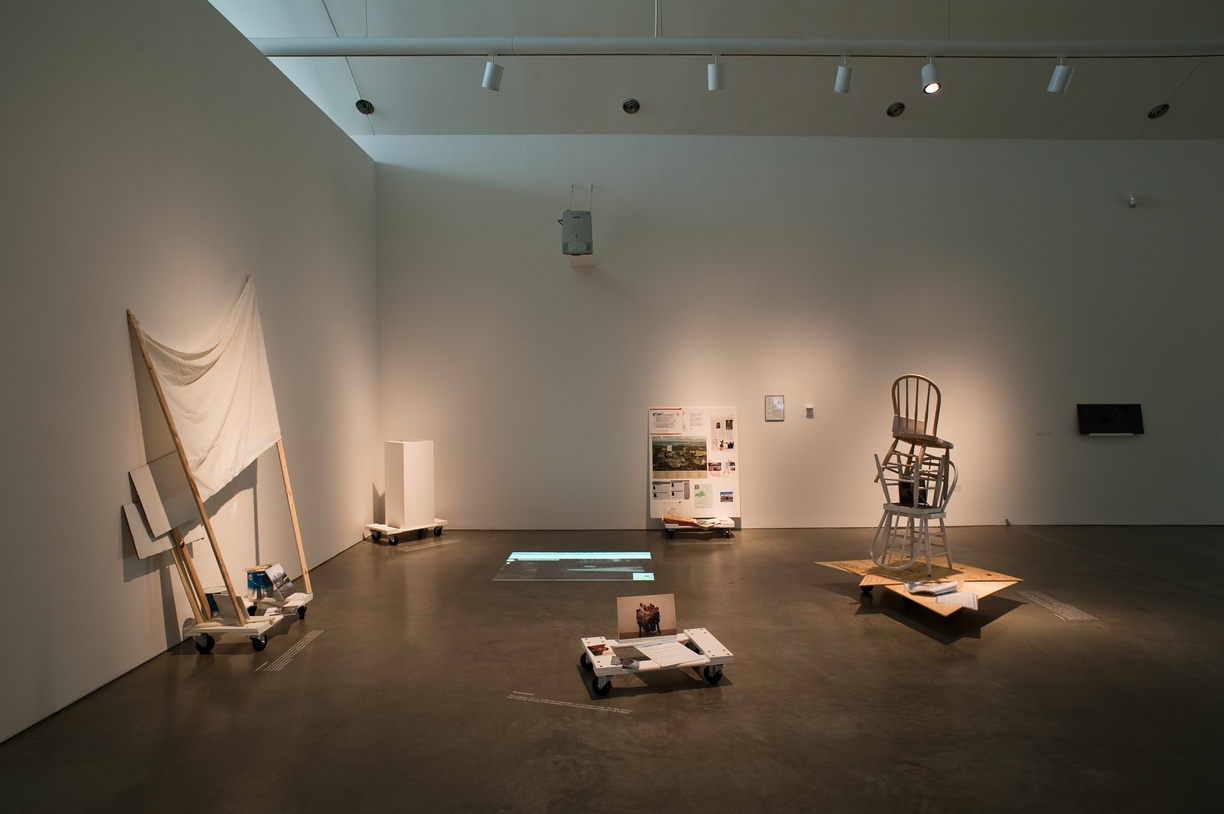
- Gabi Ngcobo
- Carlos E. Palacios
- Andrea Torreblanca de la Sierra
Second Coming is a collaboration that explores notions of absence, the phantasmagoric, and postcolonial subjectivities. Attracted by the manner in which the artists’ practices articulate quasi-transcendental aesthetics as well as resistance to the lure of spatial identification, the curators and artists present opportunities to ask not how to find a ghost, but if that which haunts history and place can be addressed; not how to be present in absentia, but if, in absence, one’s presence can transform an environment; not if there is a relationship between the “self” and “other,” but if there are other selves that inhabit one. Central to the collaboration is a motivation to analyze the relationship between illusion and recognition, and an attempt to map that which refuses to be mapped.
One of the common aspects defining this collective proposal is the idea of the curator as medium. As curators we act as agents, intervening in the production by transmitting certain particularities of the context to the artist’s discourse. The three projects that conform this proposal share multiple sites: one refers to the place where the artists are located during the production; another constitutes the space of CCS Bard (as a site-specific location); and the third is the place where communication between artists and curators occurs.
THE ARTISTS
Metapong started out as a friendship between Leonardo Marz and Isaac Muñoz, two artists who were drawn by the idea of collaborative practices and the process of producing meaning within this rapport. One of their main tools for their persuasive continuity is the constant conversation they sustain about exhibition strategies, spatial negotiations and conceptual frameworks. Marz and Muñoz dismantle different tactics within the art world to reconstruct an idea of place and space contained by their experiences.
Nástio Mosquito works within various artistic fields; art, music, film and spoken word performance. A self-proclaimed “communicator” Mosquito employs different media to critic and re-construct meaning about art, politics and history. His background in television and radio broadcasting, allows Mosquito to utilize technology and performance to his advantage by mimicking news reports, documentary films and to a certain degree contemporary surveying mechanisms.
Thando Mama works primarily with video, sound and installation. His work encompasses the broadly political as well as formalistic conventions of art. He uses digital moving imagery in the tradition of portraiture as performative self-referential form of scrutiny and comments on the role television has played in constructing identities, especially black masculine identity and the impact it has on his understanding and perception of life.
Pablo Rasgado is a mixed-media artist born in México City. In his works, Rasgado uses a large variety of techniques such sculpture, video and photography, pushing the limits of the materials through a series of strategies linked to formal and conceptual possibilities of the unseen and the suspended.
He received a college degree in visual arts from the State University of Morelos. Since the mid eighties, Rasgado´s work has been shown in a wide rage of venues as Casa Emergente, Cuernavaca, Mexico; Museo Universitario de Ciencias y Artes MUCA Roma. México DF; Fototeca and Pinacoteca Parque Fundidora, Monterrey, México and The University of Texas at Dallas, among others.
His last solo show was Eternity in an empty white room in Arcaute arte contemporáneo. Monterrey, México.
Discussion:
Monday, April 12, 12:00 – 1:30 p.m.
President’s Room, Kline Commons, Bard College
A conversation about the context of the contemporary Latin American art scene with artist Pablo Rasgado, Carlos Palacios, and students from the Latin American and Iberian Studies program at Bard College. The conversation will be held primarily in Spanish.
Discussion:
Wednesday, April 14, 5.30 – 7.30 p.m.
Weis Cinema, Bard College
“Oh what a circus!” A conversation between artist Nástio Mosquito and writer Binyavanga Wainaina, facilitated by Gabi Ngcobo. This conversation will depart from Africalls?, a documentary film created by a company from Barcelona, that features artists working from the urban context of seven African cities: Cape Town, Douala, Dakar, Luanda, Maputo, Nairobi, and Rabat.
Second Coming is curated by Gabi Ngcobo, Carlos E. Palacios, Andrea Torreblanca as part of the requirements for the master of arts degree in curatorial studies.
Student-curated projects at CCS Bard are made possible with support from the Rebecca and Martin Eisenberg Student Exhibition Fund; the Mitzi and Warren Eisenberg Family Foundation; the Audrey and Sydney Irmas Charitable Foundation; the Board of Governors of the Center for Curatorial Studies, and by the Center’s Patrons, Supporters, and Friends. Special thanks to the Robert Mapplethorpe Foundation.



